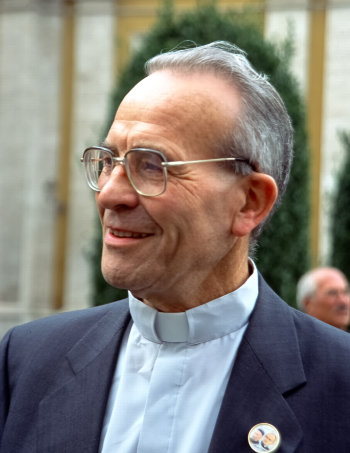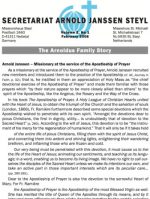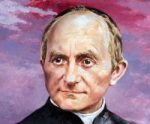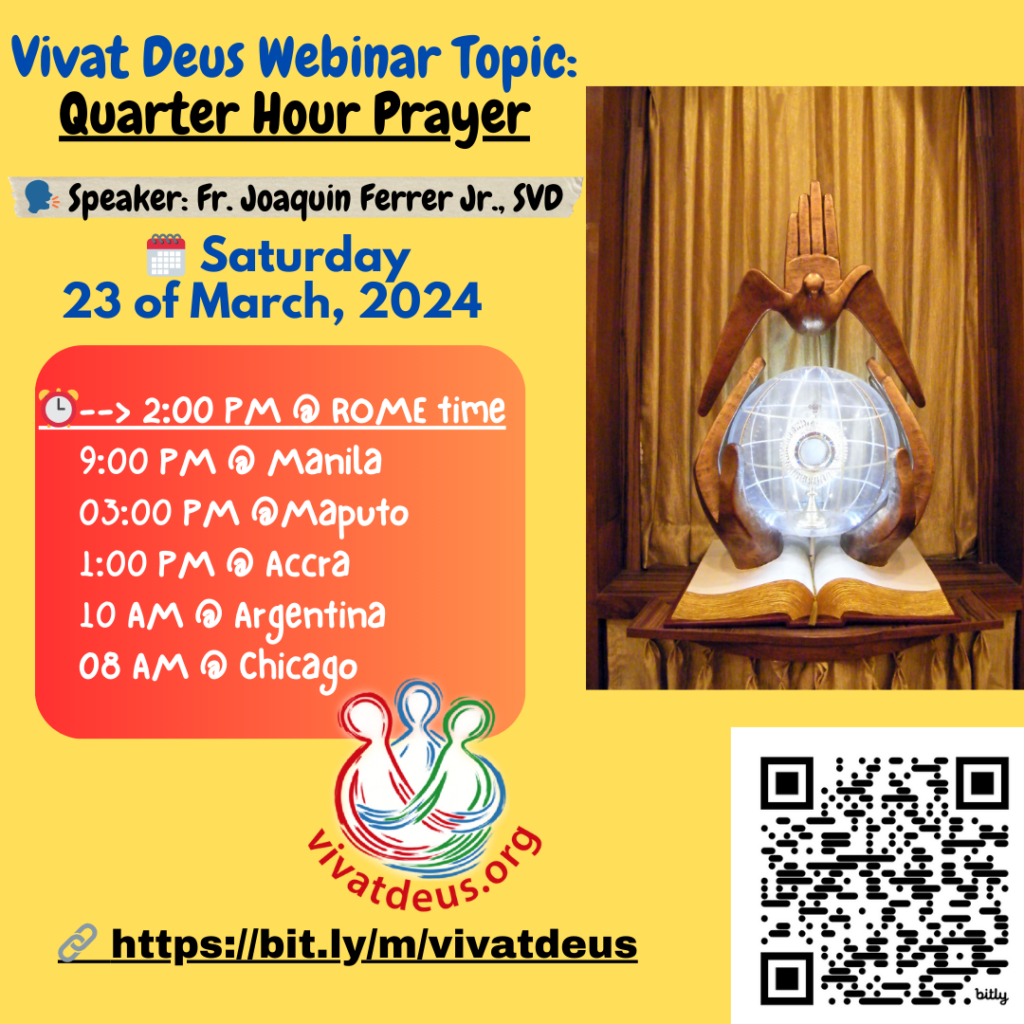Homily by Fr. Henry Heekeren
It seems that today will be the last time that we shall celebrate the feast of Arnold Janssen as Blessed. By next January 15th he will already have been canonized. It is only natural that we ask the question: “Why the canonization? Is the beatification not sufficient?” In my homily today, I shall try to answer that question.
Yes, why the canonization of Blessed Arnold Janssen? The Church’s official answer is that beatification means among other things that the person concerned can be a model for particular groups or for a local Church – in this case for the three missionary congregations founded by Blessed Arnold and for all those people who are associated with them in various ways. In a canonization, the significance of the person for the whole Church is highlighted. What would that be in the case of Arnold Janssen? The following points come to mind:
– At the time of the Kulturkampf, the Catholic Church in Germany was very concerned about its own survival. Hence, when Arnold Janssen requested a recommendation from the Archbishop of Cologne for his plan to establish a mission seminary for the foreign missions, the Archbishop replied: “We live in a time when everything seems to be shaking and sinking. Now you are coming and want to start something new?” Father Janssen replied: “We live in a time when much is collapsing, and new things must be established in their place.” His unshakable trust in God was not disappointed. The opening of the Church in Germany to the Church’s worldwide mission, so powerfully promoted by him, led to its inner renewal and growth. It seems to me that such a vision and approach remain relevant in the Church today for the renewal of Christian life both here in Europe and throughout the world.
– In Steyl and in the three Congregations founded by him, the members lived a life of poverty and solidarity with the still poorer people of China, New Guinea, Togo, etc. Long before all the talk about development, Arnold Janssen encouraged his missionaries to deal with social problems through the establishment of schools, hospitals, technical schools and other social projects. Hence, he was on the constant lookout for competent Sisters and Brothers in these social fields. Thus, the universal Church’s option for the poor finds in Arnold Janssen an enduring model.
– Arnold Janssen’s solidarity with the abandoned and marginalized in the world repeatedly brought him into conflict with the German colonial authorities. Hence, he had to put up with the superiors in the Togo mission being accused and thrown out, because they had defended the local Togolese against unjust treatment by the colonial officials there. In 1898, he succeeded in calling a meeting of superiors of mission-sending societies in Germany so that together they could put more pressure on the policies of the Colonial Office in Berlin. This was the first of more than one hundred national meetings of religious superiors in Germany. Courageous opposition to political and industrial oppression of the poor remains relevant today.
– He considered a thorough knowledge of other religions, cultures and languages an indispensable prerequisite for an effective proclamation of the Good News. Hence, he fostered the scientific study of religions, languages, missiology, and folklore. At his time that was an exception among missionary congregations. Today, these studies are considered essential by all missionary institutes for the inculturation of the Gospel and for dialogue with other religions.
– Even before the foundation at Steyl, Arnold Janssen was already considering a mission seminary for candidates from Germany, Holland and Austria. From the beginning he was open to accepting candidates from all nationalities and he wanted them to live in communities made up of different nationalities, which was unusual in his day. Today, we live in an ever-growing multicultural world filled with numerous ethnic conflicts in many countries. International teams of missionaries, who live and work together in harmony, can be a powerful response to the tensions and conflicts between different nationalities and ethnic groups.
– Every year we celebrate a week of prayer for unity among Christians. For Arnold Janssen, this unity was of special concern. He considered this unity – as Jesus did in his farewell prayer (Jn. 17:21) – the condition for a convincing proclamation of the Good News. This concern has not lost its relevance today.
– Other aspects of the life and work of Arnold Janssen which are relevant for today include his effective use of the media, his deep appreciation for the contribution of the laity in missionary activity, his promotion of retreats, especially for lay people, and his firm conviction that all missionaries must first live by the Word of God in order to preach it effectively.
Where did Arnold get the light and strength for so many missionary initiatives, that are still relevant today?
– First, he was a man of prayer and close union with God. (During his years in Bocholt, he did much through his writings and visits to hundreds of parishes for spreading the Apostleship of Prayer.)
– Just as the contemporary Church does in its striving for renewal, Arnold Janssen laid emphasis on following the Incarnate Word and openness to the Holy Spirit (as we see in the names of his congregations*), and a life of complete trust in God, our merciful Father. Arnold Janssen was an outstanding devotee of the Blessed Trinity. Like him the Church today increasingly emphasizes that ecclesial communities are grounded in the Triune God and must be mission oriented.
– We can therefore say that the spirituality of Arnold Janssen, despite its expression through the popular devotions of his time, is rooted in a genuine Christian spirituality which is still relevant for our multicultural world.
– Some of these points may be mentioned by the Holy Father in the canonization ceremony when he speaks about Arnold Janssen’s relevance for the Universal Church today. But his greatest relevance may come from the more than 10,000 spiritual sons and daughters who are active in more than 65 countries proclaiming the Word of God.
– For us his sons and daughters, the canonization of Arnold of Steyl, should be an invitation to be ever more open to the Spirit of God and, as far as we are able to commit ourselves to the service of the Gospel, May God, through the intercession of Blessed Arnold Janssen, grant us this grace. Amen.
* The names of his three congregations are: Society of the Divine Word (SVD), Sisters Servants of the Holy Spirit (SSpS), and Sisters Servants of the Holy Spirit of Perpetual Adoration (SSpSAP).







